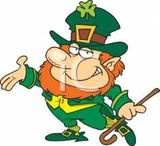"The Jockey" by Carson McCullers" (1917 to 1967-Columbus, Georgia, USA) was first published in the New Yorker Magazine in 1941. McCullers is best known for her very famous work, set in the American south (we have been there recently in the stories of Eudora Welty) The Heart is a Lonely Hunter (1940) . You can read about her life here.
 |
| "Don't Worry Carson, I will make sure you do not get lonely during Irish Short Story Week"-Carmilla |
I guess I should have known about this a long time ago, but The New Yorker (the number one place in the world for the publication of short stories) has about 60 short stories on line as pod casts. The stories are from the archives of the magazine. They are read by a contemporary story writer and there is a before and conversation about the story with the fiction editor of the magazine. There are some really good stories there. I found stories by Eudora Welty, Raymond Carver and Frank O'Conner, for example. Most pod casts are about 30 minutes long. You can, of course, download them to an Ipod and listen latter. I am sure you could also put it on a CD and listen while you drive. It is all free and requires no registration. Every month there is a new story.
As "The Jockey" opens we are at the race track in Louisville Kentucky on the day of the annual Kentucky Derby, the most famous horse racing event in America. It is also was at the time a very high status social day for the rich and famous. There is not a lot of plot to "The Jockey". When we first meet the jockey we are in a bar at the Kentucky Downs in the company of someone know simply as "a rich man" and a few other nameless people. A jockey walks into the bar and is described just as if he were a child in a green silk outfit. I think it helps to know that at the time white Americans in the South often had small statues of black men in jockey outfits on their lawns. The bar patrons begin to talk about the jockey as if he were not even there. Jockeys were all very small, to keep the weight down for the horses. Sadly this jockey had gained 3 pounds in just few days and now weighed an unacceptable 112 pounds. The rich man says he heard the jockey was eating nothing but rose pedals in an effort to lose weight. The jockey feels envy for the men in the bar talking about him. It seems he in fact works for them. McCullers used color symbolism in the story. For example, the green of the jockey's uniform is meant to symbolize his jealousy. This passage will give you a good feel for the style of McCullers.
"He was wearing a suit of green Chinese silk that evening, tailored precisely and the size of a costume outfit for a child. The shirt was yellow, the tie striped with pastel colors. He had no hat with him and wore his hair brushed down in a stiff, wet bang on his forehead. His face was drawn, ageless, and gray. There were shadowed hollows at his temples and his mouth was set in a wiry smile. After a time he was aware that he had been seen by one of the three men he had been watching. But the jockey did not nod; he only raised his chin still higher and hooked the thumb of his tense hand in the pocket of his coat.
The three men at the corner table were a trainer, a bookie, and a rich man. The trainer was Sylvester -- a large, loosely built fellow with a flushed nose and slow blue eyes. The bookie was Simmons. The rich man was the owner of a horse named Seltzer, which the jockey had ridden that afternoon. The three of them drank whiskey with soda, and a white-coated waiter had just brought on the main course of the dinner."
The Jockey" is about class (now of course Derby Jockeys are very well paid), about treating people as tools, about assuming those without money or power have no real feelings. I liked it a lot. I will be listening to more of these pod casts and I have also found some other good sources for them online.
There is an interesting and a bit amusing account McCullers visit to Bowen Court where she stayed for about a month with Elizabeth Bowen and Bowen's husband in Victoria Glendinning's biography of Bowen. If McCullers stops by on Elizabeth Bowen Day (March 18) during Irish Short Story Week, maybe we will hear about how the visit went.
McCullers is a GLBT author.
 |
| "Hope to see you next week"-Rory |
Mel u






1 comment:
This is a great story. I just read it last week. :-)
Post a Comment